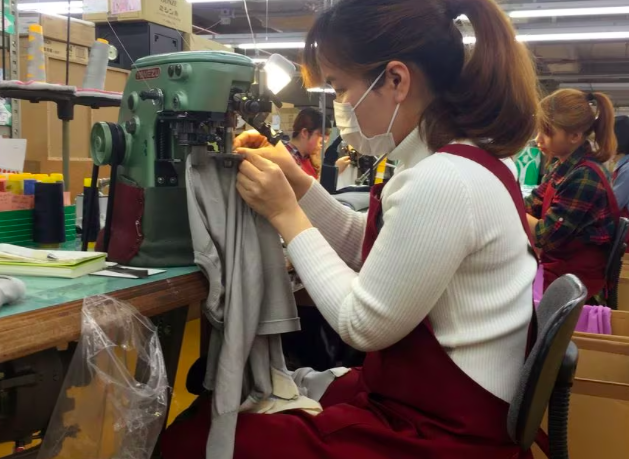Vietnamese interns forced into contraception to work in Japan
Japanese law would provide for foreign female interns to have a pregnancy while receiving the necessary subsidies from the company, and then resume the internship. But according to Jiho Yoshimizu, representative of the nonprofit organization that carried out the investigation uncovering the abuses, "their human and reproductive rights are in fact violated by the current Japanese labor system."
Tokyo (AsiaNews/Agencies) - When a young Vietnamese woman discovered she was pregnant in 2019 after arriving in Japan on a "technical training" visa, she was given a choice: "Abort or return to Vietnam". But the returning home would have left her with no way to repay her internship recruiters.
"She needs to stay to repay her debts," said Shiro Sasaki, general secretary of the Zentoitsu (All United) workers' union, which defended the interns cause by revealing that several women, especially Vietnamese, had been forced to undergo contraceptive treatment by the organizations involved in the work placement program in Japan.
The matter was reported by an investigation by a Japanese NGO, in which data were made public on Sunday. From this investigation a "practice" emerges that violates the human and reproductive rights of Vietnamese women.
The survey, conducted between August and September last year, covered current and former Vietnamese trainees and received responses from 59 of them. Of the interviewees, 36 said they had received instructions from intermediary organizations in Vietnam that select trainee candidates to avoid pregnancy in any way.
Nine of them were directly advised to undergo contraceptive treatment. Five did, and one of them explicitly said that she had been made to understand that she could not go to Japan without following those instructions. The other four said they had not undergone it, mainly due to the high cost.
Furthermore, it emerged that there were numerous cases in which intermediary organizations warned Vietnamese trainees that they would be sent home if they became pregnant during their work stay in Japan.
Jiho Yoshimizu, representative of the non-profit organization that carried out the investigation, said that it is unthinkable that all these women were truly able to choose contraception of their own free will: “It is a problem from a violation of humanitarian law that foreign workers' pregnancy is limited due to the inadequate labor system in Japan," Yoshimizu added.
Also for these reasons, Fumio Kishida's government is considering the possibility of abolishing the current technical internship program for foreigners, started in 1993 to transfer knowledge and skills to workers from developing countries.
According to the Organization for the Technical Training of Interns, Vietnam sends the largest number of interns to Japan as part of the program: today there would be around 10,000 in the Japanese country, and the majority would be women.
A few years ago a news case involved a Vietnamese intern who was arrested for abandoning her child for fear that her employer would send her home due to her pregnancy.
Japanese law, on paper, guarantees equal employment opportunities for men and women, and prohibits improper treatment of female workers following pregnancy and childbirth, and foreign women are also entitled to receive benefits such as lump sum payments for childbirth and care of children, antenatal and postnatal leave and childcare.
However, the investigation highlighted that “interns' reproductive rights, which allow them to decide whether to have and raise a child, have not been respected in the current system,” concludes Yoshimizu.
29/01/2024 14:26
11/08/2017 20:05
14/07/2018 15:35







.png)










